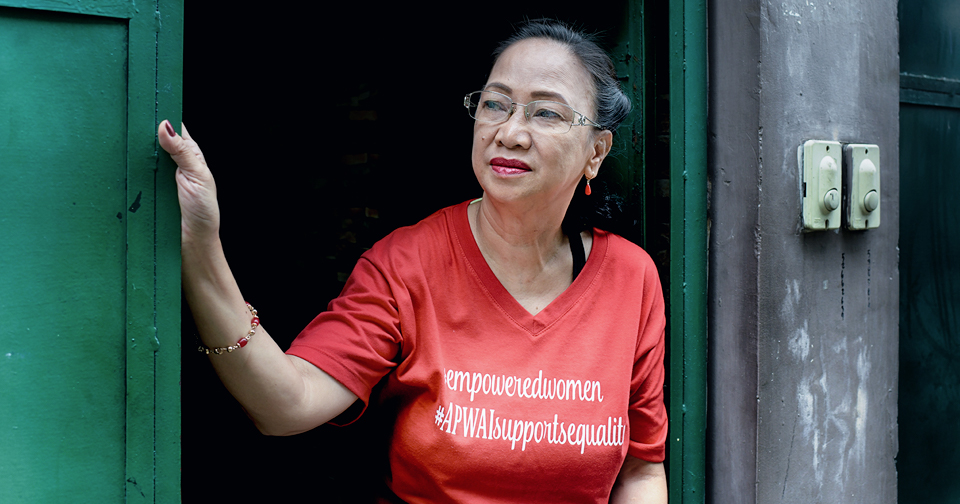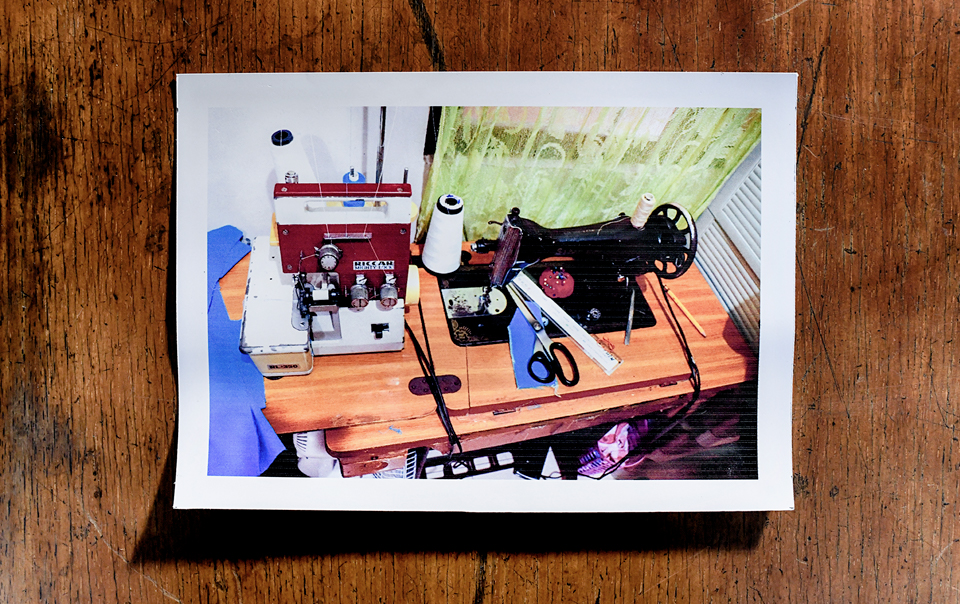Journeys out of the Ordinary | Elena’s story
“My children tell me they are proud of me.” —Elena Felix, Philippines
Date:

I’m 61 years old now, and I have 10 grandchildren. Looking back at my life, I’m proud I was able to send my children to school, and I’m happy that now as a social worker and activist, I’m able to help others who are HIV positive.
The main reason I went to work abroad when I was younger was to get away from my husband. He physically, sexually, psychologically and emotionally abused me, especially when he was drunk. It’s not possible to get divorced in the Philippines, and there was a lot of social pressure to stay with him, so the only way I could get away from him was to leave.
I hated leaving my children, but my husband didn't support us.
I trained as a seamstress and was able to find work abroad, in Qatar. But I experienced sexual harassment in my employer’s home. The employer himself was fine, but his brother lived there too. I shared a room with another Filipina, and the brother would come into our room at night and try to have sex with us. We told our employer then, and the brother stopped the advances.
Then, at my next job in Oman, my employer decided to close his shop, leaving me without work. What he proposed next shocked me: he offered to pay me to have sex with him. He wouldn’t let me go home, or let me get another job, but I still needed to send money to my children. I was trapped, afraid my employer would make false accusations against me, and then I would be in trouble, so I did it to survive.
Then I secured another job in Dubai, also as a seamstress. But my wages were delayed for about two months there, so I needed to find another part-time job. I met a man who said he could help, and I began working as a sex worker.
The first client forced me to do things that I hadn’t agree to, and he hurt me badly. I couldn’t leave the house for days. But I didn’t dare to go to the hospital because I didn't want people to ask what had happened to me. So, to supplement my meagre income as a seamstress and send money to my children, I continued to work part-time as a sex worker.
Between contracts with different employers I went home to the Philippines to process my paperwork, and art of the process was a medical examination. That was when I found that I was HIV-positive, and I was declared results said I was "unfit to work. But then I had a second test, and it came back negative. So, I went back to Dubai, where I then took another medical exam, and few days later my employer called me in to say that I would be sent home because of my HIV status.
My world crumbled, and I thought about committing suicide. And I had to face my children and tell them that we had to start over. But hey were happy when I said that at least I wouldn’t be migrating abroad again. And I saw the joy in their eyes, and I felt brave. I knew that I needed to pull myself up and be with my children.
In the early days of my diagnosis there was a lot of misinformation around HIV and AIDS, and I was initially refused a surgery that I needed for an unrelated condition. At that time, HIV was also labelled a "gay disease".
Eventually I found a hospital that would do the surgery, although I suffered humiliating discrimination by hospital staff. Then I started antiretroviral therapy, and went to support groups, and my health improved.
I decided that I wanted to tell people that it was not only men who were living with HIV, so I became the face of women living with HIV. But before I first spoke out, I asked my children how they would feel if I came out to share my HIV status, and they said that they're proud of me that I was showing my courage by telling the stories of women living with HIV. They said they were proud that I was their mother.
And then other activists learned that I was willing to come out as an HIV positive person, I was invited to speak about having HIV. I especially spoke to migrants who were living with HIV.”
My message is: “I would like to tell all the employers out there that they should know more about the rights of migrant workers, especially women. They need to know about sexual and reproductive health and mental health. And if you have migrant workers who have HIV working for you, please learn the proper way of responding to them and the proper referral mechanisms to assist the worker when it’s time for her to travel back home. No migrant worker with HIV should ever be quarantined.”
Object description:
This sewing machine symbolizes my hard work and my determination to achieve my goals. I was able to buy it in Dubai with my own savings.
Safe and Fair provides capacity building to health care workers. A priority is to make information on health-care services (costs, medico-legal exams, urgent health care, sexual and reproductive health care) available. Safe and Fair also provides information services to women migrant workers through Migrant Worker Resource Centres and other partners in countries of origin and destination.
